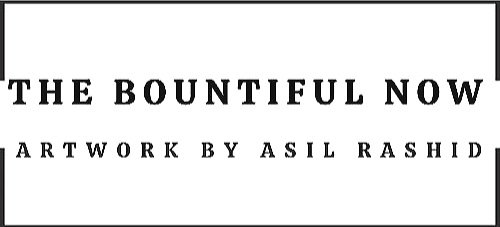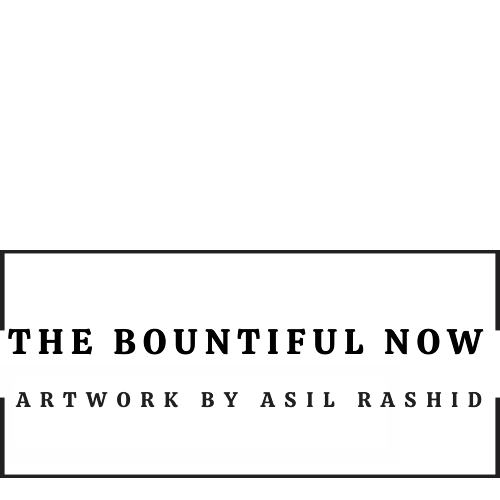The Damaging Effects of Unsolicited Parenting Advice
Originally published April 27, 2020
A couple of days ago I watched the season finale of a show called "Little Fires Everywhere" which drew stellar performances from Reese Witherspoon and Kerry Washington. The show is about mothering, and how race and class inevitably play a role in our parenting choices. But ultimately, it is about the different ways we mother, the assumptions and judgments we make about mothers who are placed in situations that we cannot even conceive of because we were fortunate enough to have better choices at our disposal. After all, context is everything.
It got me thinking about the assumptions people made about my choices as a mother. We've all thrown that critical look at a mother whose toddler was throwing one of her epic tantrums in style. We've all assumed that because a mother may give in that one time that she gives in every time. The thing that people don't know is that mothering is an intensely private, intimate affair. A lot of it happens behind the scenes. The major breakthroughs occur out of sight of the probing eyes of other family members, in-laws, friends or simply strangers. No one really knows the contract forged between a mother and her child: an alliance tested by battles fought every day, uneasy truces arrived at through a perpetual give and take, an endless compromise, a never-ending power struggle. Not just between the mother and the child, but between what a mother feels she needs to do for her child and what she needs to do for herself. Here's an even bigger secret: sometimes, not all the time, but sometimes, her "self" wins.
Ever since I had my daughter 4 years ago, my life has changed in unimaginable ways and all the hard and fast rules I thought I would uphold as a parent disappeared in to thin air. However, the one thing I didn't count on was the deluge of unsolicited advice from family, in-laws, friends, even complete strangers. One of the most memorable fights I've had with my husband when our daughter was still a baby, was about co-sleeping. His family was adamantly against it. I was for it. Not just because I read all the scientific evidence of its benefits but also because I needed to do it for me. I needed her close to me, she made me feel safe. Quite ironic when I think about how her birth triggered the worst bout of depression I've ever experienced. But I also instinctively and quite rightly predicted that outside my sphere of motherhood, my life, my marriage was slowly dismantling and I needed to keep the chaos out. Having her near me helped. Furthermore, I just couldn't tolerate anyone questioning what I felt in my blood to be the right thing to do. They weren't in my head so they had, at best, a partial view of what I was dealing with, rendering their assumptions and judgments to be completely baseless.
As my daughter grew into a very active 4-year old and the circumstances in our lives changed drastically: (we lived in 3 countries in the last coupe of years), my marriage and our family structure has been severely disrupted and suddenly my daughter has found herself last year our of school for a few months, living with her grandmother and adjusting to life in a whole new country. Children are resilient though, and while she has adapted pretty well, I, on the other hand, have not been as resilient. Everything that has happened to me has taken its toll and that has made the task of parenting a toddler that much more burdensome. And while my child has taken it very well, she is still, nevertheless, a child. A toddler, no less. And prone to tantrums. Lots of them.
The unsolicited advice continued, along with pseudo-psychoanalysis of my daughter on several occasions. Yes, most of the time, people giving advice are friends, but they don't have children of their own, so one must question credibility of their advice, if not their good intentions. After all, you know what they say about good intentions. The road to hell, and all that. The advice covered the whole spectrum but the main themes were children are manipulative, that I was giving in to my child and that my child knows that when she cries she will get what she wants out of me. Now this wasn't a one time thing. This was almost constant comments made to my face and in front of other people.
This "advice" is problematic on so many levels: Firstly, it has been proven scientifically that children do not have the brain capacity or emotional development for manipulative behavior. Their instincts are purely fight or flight. Crying is the only way they know to express their negative emotions. It's just inaccurate to say something like that. Secondly: their pseudo-psychoanalysis of my child is superficial at best. It's a cliche. We've been hearing this from our grandmothers since time immemorial. Its an incorrect assessment of children that has been passed down through the generations cemented into an accepted truth to be parroted by people who have no children and no conception of the daily struggle of taking care of a toddler. It doesn't make one sound more knowledgeable. It has the opposite effect. Third: It presupposes that a mother doesn't know her child as much as an outside observer. It completely disregards that intimate contract I spoke about earlier, a contract built on a million little agreements and deals between a mother and her child. For example, I may have given my daughter candy to shut her up but then I made a deal with her that she would get into the shower without complaints and go to bed early. It's a simplistic generalization that reduces the act of mothering to the few moments in time that are witnessed by an outside observer. It masks a lot of the specificity, the real work that goes on behind the scenes. Fourth: Such assumptions are made mostly by people who don't have children of their own. We've all had certain assumptions about the kind of mothers we would be, we've made judgments about other parents before we became parents ourselves. But believe me when I say that everything you thought you knew, the vision of the perfect mother you thought you would embody will change beyond recognition. It will evaporate and you will find yourself charting entirely new territory to the one you had in your mind. Unless you've walked in that mother's shoes you will never know what a long, treacherous walk motherhood is. In fact, I'm reminded of a meme I saw once which said, "Perfect parents exist, but they don't have children yet."
Finally: People might think that such comments are helpful. On the contrary, they have the opposite effect. Because when you imply to a mother that her child is manipulating her and she should not give in, in the face of all that you don't know and all that she does know, you are just placing more pressure on her to do what you think is right as opposed to what she knows is right for her, if only to stave off more criticism. And let's face it, if that mother loses her shit and has a breakdown, no one, especially not the "well-meaning" adviser will be there to take care of her child.
Motherhood is nothing if not one long series of trade-offs and compromises and improvisations. We are all making it up as we go along. No one knows how many tantrums during which I actually stood my ground that day as opposed to that 10th or perhaps 20th tantrum of the day where I decided that my sanity was worth giving in (whether it means giving my a child a piece of chocolate or doing anything else that will be viewed with judgment by people), because they only see my "compromise" during that brief moment in time. But that is a tableau at best, it doesn't capture the entire gamut of motherhood and the constant decision-making that comes along with it.
One day, my daughter decided to throw one of her theatrical tantrums for no apparent reason in the play area beneath our building. This was at the beginning of quarantine and I was still grappling with the reality of school closures, as were many other mothers. I was already at the end of my wits and someone said yet another one of those "well-meaning" cliches about children. It triggered me and I just sat down defeated beside a good friend and neighbor (who also has a 4 year old) and started crying. I asked her if I was doing something wrong with my daughter. All she said was "Why are you even asking that question? Don't listen to anyone about how to raise your child, especially people who don't have kids." I was waiting for some sort of constructive criticism but she gave no other advice. That was like balm to me. It was like someone placed their hand over my racing heart and calmed it down. It was exactly what I needed to hear all along. Nothing else. It wasn't a caveat or disclaimer tacked on to the end of a critical comment or piece of unasked for advice, like a band-aid. She said that and only that. And it was enough.
Motherhood is a war, especially during the toddler phase or adolescent phase or any phase actually. A war being waged from the time you wake up till the time you go to sleep. And it repeats itself all over again the next day, with no breaks, except the ones you allow yourself. Furthermore, there is no one size fits all when it comes to mothering. One mother's experience is vastly different to another's, (barring some basic similarities of course). One mother may have had all the resources and support at her disposal (from affordable childcare to an involved spouse to financial stability), while another mother might be doing it all on her own. As a character in the show "Little Fires Everywhere" said, "No mother gets it right one hundred percent of the time." So when a mother is dealing with probably the 50th tantrum of the day from her toddler, and she is trying not to go over that cliff edge, the kindest, most understanding thing you can say, the only thing that you should say is "Hold on. You're doing great."


